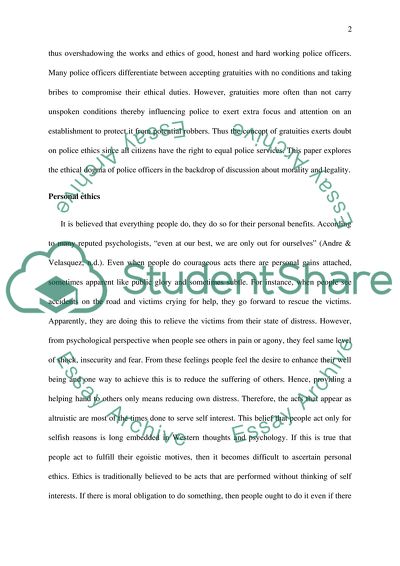Cite this document
(“The Ethical Dogma of Police Officers Research Paper”, n.d.)
The Ethical Dogma of Police Officers Research Paper. Retrieved from https://studentshare.org/law/1810262-is-it-ethical-for-police-officers-to-expect-free-gratuities-from-business-when-their-policy-is-unclear
The Ethical Dogma of Police Officers Research Paper. Retrieved from https://studentshare.org/law/1810262-is-it-ethical-for-police-officers-to-expect-free-gratuities-from-business-when-their-policy-is-unclear
(The Ethical Dogma of Police Officers Research Paper)
The Ethical Dogma of Police Officers Research Paper. https://studentshare.org/law/1810262-is-it-ethical-for-police-officers-to-expect-free-gratuities-from-business-when-their-policy-is-unclear.
The Ethical Dogma of Police Officers Research Paper. https://studentshare.org/law/1810262-is-it-ethical-for-police-officers-to-expect-free-gratuities-from-business-when-their-policy-is-unclear.
“The Ethical Dogma of Police Officers Research Paper”, n.d. https://studentshare.org/law/1810262-is-it-ethical-for-police-officers-to-expect-free-gratuities-from-business-when-their-policy-is-unclear.


